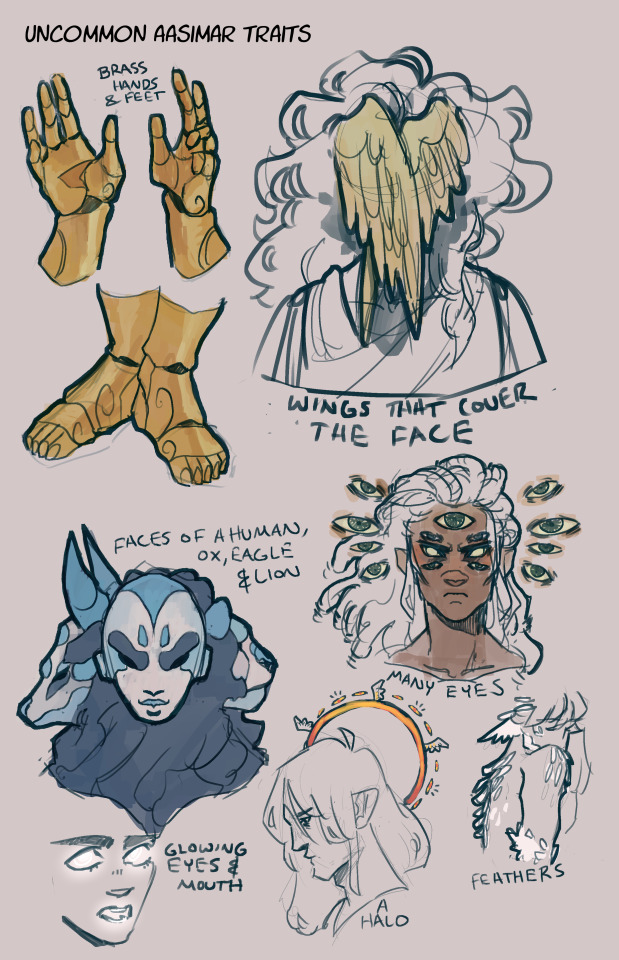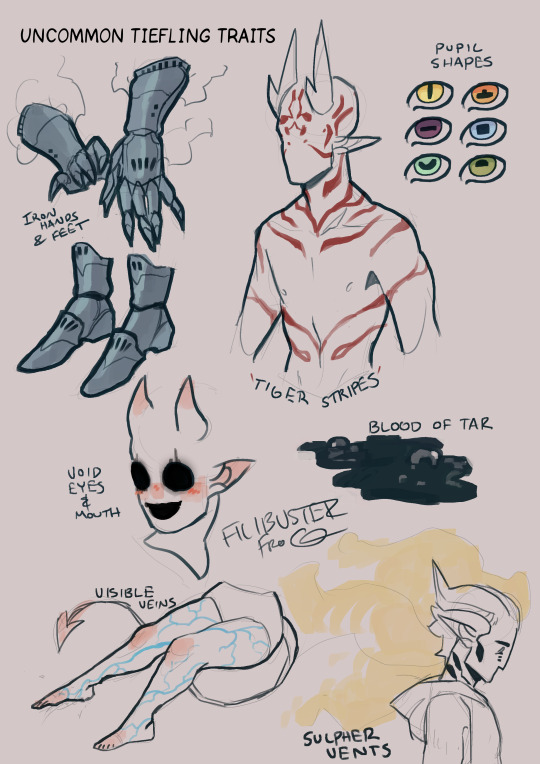side blog for writing main wattsynessy
Last active 60 minutes ago
Don't wanna be here? Send us removal request.
Text
Skip Google for Research
As Google has worked to overtake the internet, its search algorithm has not just gotten worse. It has been designed to prioritize advertisers and popular pages often times excluding pages and content that better matches your search terms
As a writer in need of information for my stories, I find this unacceptable. As a proponent of availability of information so the populace can actually educate itself, it is unforgivable.
Below is a concise list of useful research sites compiled by Edward Clark over on Facebook. I was familiar with some, but not all of these.
⁂
Google is so powerful that it “hides” other search systems from us. We just don’t know the existence of most of them. Meanwhile, there are still a huge number of excellent searchers in the world who specialize in books, science, other smart information. Keep a list of sites you never heard of.
www.refseek.com - Academic Resource Search. More than a billion sources: encyclopedia, monographies, magazines.
www.worldcat.org - a search for the contents of 20 thousand worldwide libraries. Find out where lies the nearest rare book you need.
https://link.springer.com - access to more than 10 million scientific documents: books, articles, research protocols.
www.bioline.org.br is a library of scientific bioscience journals published in developing countries.
http://repec.org - volunteers from 102 countries have collected almost 4 million publications on economics and related science.
www.science.gov is an American state search engine on 2200+ scientific sites. More than 200 million articles are indexed.
www.pdfdrive.com is the largest website for free download of books in PDF format. Claiming over 225 million names.
www.base-search.net is one of the most powerful researches on academic studies texts. More than 100 million scientific documents, 70% of them are free
301K notes
·
View notes
Text
Extremely Comprehensive World-building Checklist
Inspiration for every country
Map, or basic understanding of the layout. I recommend Inkarnate for making maps!
Major historical events, think about how wars have sparked new political philosophies and how they’ve shaped cultures today (think about how Liberalism stems from a response to oppressive monarchies)
What’s the culture of the different countries in your world? What kind of arts do they practice, if the arts are widespread? What’s available for entertainment, does the average person have enough downtime to participate in leisure? What’s the architecture like? What are the major exports of each country?
Are there any major historical figures in your countries? Any influential works of literature that have been studied?
What does daily life look like for people in different socioeconomic classes?
Is the culture of country side villages and towns similar to urban areas? How does it differ?
What is the religion? Does each country follow something different, or is everyone the same? Is it mono or polytheistic? Who are the religious leaders? Do people attend church, or is worship practiced in private? Are there any rituals?
Building off of religion, is there any religious conflict?
What does the government look like? Is it an absolute monarchy? Constitutional monarchy? Or some form of democracy or republic? Who’s the leader and what other positions hold power?
Does each country have a government, or is your world ruled under one government?
What do the different classes look like in your country? Do the higher social classes look down on those beneath them? Is there a general sense of class consciousness, and class conflicts?
Climate of each country, territory, or state
Typical jobs of every country, territory, or state
What kind of transportation is available?
What does the military look like? Is there one? Do any militias operate in the rural areas?
Does your world have any myths or legends? What were they influenced by, and how do they influence the culture? Are there any superstitions around these myths?
Typical foods, what do most people eat? Is the food bland, or flavorful? How does access to food differ for different people, and does the type of food eaten change with social status?
Type of laws, do the people have any protected rights? What might get someone thrown in a cell for a night? Do your countries have an organized prison system, or do they operate by throwing everyone in the castle’s dungeons?
What kind of economy do the different countries have? Is it regulated by the government? What’s the major currency?
What’s the social life like? Are there certain customs to follow? What’s considered polite or impolite?
How are foreigners seen? Is there any hostility towards them, or are the citizens of your countries more accepting of other cultures?
What are the relationships like between countries?
What weapons are used in war?
What’s the general attitude towards war and other conflicts? Do any of your countries use a pacifist approach? Do any countries protect their neighbors from a common enemy?
Sanitary system, do they have sewage? Think about how disease was common in cities before proper sewage was invented.
Educational System for the poor, is there any sort of public education? Is there any sort of access to higher education, if it exists in your countries?
Educational system for the rich, do nobles typically hire tutors or is there a system of private schooling?
How is education viewed? Is it valued?
How do the people communicate, between cities or even countries? Is there any form of published communication, or is everything passed through spoken word?
Morality, what is considered moral or immoral?
What are the beauty standards of your country? How are different physical appearances viewed?
What’s the clothing like? What does the average peasant wear, what does the average noble wear?
What language is spoken? Do different countries speak different languages? Is there a common tongue?
Are good hygiene practices common? How often does the average person bathe?
Is marriage viewed as a religious or legal institution? What’s the general attitude towards marriage? Is it common? What does the courting process look like?
Are water and other resources readily available? Do they have to be outsourced to other countries?
Science, is it accepted? Do people actively research new things in your countries?
Going back to the prison question, what is the legal system like? Do people get trials? What sort of crimes result in different penalties? Who makes the final decision of punishment, a judge? The lord ruling over the territory the crime took place?
How is death treated? Are funerals held? Do they bury their dead, or use funeral pyres? Are funerals viewed as a celebration of the person’s life, or a time to mourn?
What kind of diseases are common? What do the symptoms look like?
What are your countries’ attitudes towards alcohol and other substances? Is drinking a common practice, or widely frowned upon?
When looking at these different aspects of your world, it’s also important to remember that the histories of our world don’t have to dictate what happens in yours. For example, public education wasn’t really common in the United States until the 1800s. On the other end of that, one of the earliest formal schools was founded in Egypt in 2061-2010 BC and many Middle Eastern cultures have pushed for education since then as the ability to read religious scripture was important.
That said, using the characteristics of different countries can be useful in guiding your own and the histories of said countries can guide you even further. Your world can resemble ours, or be totally different and backwards. At the end of the day, have fun!
3K notes
·
View notes
Photo


some traits u can add to ur characters or npcs if u want!
40K notes
·
View notes
Text
physical intimacy prompts
holding hands during a stressful situation
smiling in-between kisses
touching foreheads
cheek kisses
slow dancing
intertwining fingers
comparing hand sizes
resting your head on your partner's lap
piggy back rides
standing on your tip toes to reach your partner's lips
kissing your partner's wounds
forehead kisses
falling asleep on your partner's shoulder
bridal carries
spooning
rolling over in bed, switching positions during a kiss
embracing your partner
intertwining fingers when making love
pulling away from a kiss, deeply looking into each other's eyes, appreciating being here with each other before diving back in
nudging into the crook of your partner's neck
being carried/tucked into bed, after having fallen asleep on the couch waiting for your partner to come home
saying ''i love you'' in-between kisses
nose boops
back rubs
tracing fingers down your partner's chest
hand on chest during a casual conversation
bumping into each other
hugs that last longer than they should
showering together
hands around the waist
straddling your partner's thighs
helping your partner undress
playing with your partner's hair
falling asleep to your partner's heartbeat
resting a hand on your partner's back
squeezing each other's hands
sitting in your partner's lap
cupping your partner's face
tickling
linking arms with each other
exploring each other's lips
caressing your partner's face
brushing your lips together, lingering for a moment
jumping into your partner's arms
wrapping legs around your partner
tucking a strand of hair behind your partner's ear
pulling your partner into your lap
hugging from behind
lifting your partner off the ground
holding hands across the table
holding hands under the table
bear hugs
caressing your partner's hand
laying a hand on your partner's thigh
literally sharing a sweater
slapping your partner's butt
tummy kisses
feeling each other's pulse
glancing at each other's lips
falling asleep while cuddling on the couch
climbing back into bed, onto your partner's body to wake them up
15K notes
·
View notes
Text
You are a necromancer for hire. No you don’t raise undead armies to take over the world. You are usually contracted out by police to help solve murders. Or you raise those who have passed to settle lawsuits surrounding their will. It’s not much but it’s honest work.
7K notes
·
View notes
Text
The frightened boy picked up the fallen sword of his dead father and held it in front of him as the attackers advanced. “Don’t be afraid boy. Just hold on to me and let me do the fighting,” whispered the sword.
5K notes
·
View notes
Text
For years, the hero and villain’s rivalry continues with seemingly no end in sight. You are the hero’s sidekick and are frustrated with them and often rant about it to this nice girl you’ve gotten to know at the cafe, who unbeknownst to you is the villain’s minion, who feels the same way.
6K notes
·
View notes
Text
A panicked scream of “Is anybody here a doctor?” You tentatively raise your hand. “I’m a Necromancer, if you’re willing to wait a few minutes.”
7K notes
·
View notes
Text
Types of intelligence for your OCs
What kind of intelligence does your character posses? Based on theory of multiple intelligences, these are some ideas what kind of smarts your characters might posses that aren’t the typical academic or street smarts.
1. Visual-spatial (space smart)
These people are good at visualizing things, seeing in 3D, being able to imagine how things look even out of sight from the information they have about it. They are good with directions, maps, charts and pictures. Eye for drawing, patterns and puzzles.
Especially useful for: architects, engineers, artists, pilots
2. Linguistic-verbal (word smart)
The ability to use words well, when writing and speaking. Typical strenghts are telling stories, memorizing information, love for reading, skill with words, debating and persuasive skills, adept at explaining complicated subjects. Also tend to be great at languages.
Especially useful for: writers, journalists, lawyers, teachers, public speakers
3. Logical (reasoning smart)
Not necessarily but possibly mathematical, these people are great at reasoning, pattern recognition and logical analysis. Enjoyment for abstract thinking and ideas, excellent problem-solving skills and logical argumentation are other common traits. Pattersn, categories, relationships.
Especially useful for: mathematicians, accountants, scientists, and detectives.
4. Bodily-kinesthetic (body smart)
Great hand-eye cordination, physical movement, often skilled at sports, dancing and creating things with their hands. Learn and remember rather by doing than listening or reading. Sense of timing and mind-body union excellent.
Especially useful for: dancers, sculptors, actors, athletes, surgeons, crafts people, soldiers, police officers
5. Musical (sound smart)
Sensitive listeners. Thinking in patterns, recognizing rhythms, notes and melodies, good at remembering tunes, these people often enjoy singing or playing instruments. Often show great understanding of musical structure and know quickly when they hear someone going off-key.
Especially useful for: musical teachers, composers, musicians,
6. Interpersonal (people smart)
These people are very good at understanding and interacting with others. From verbal to non-verbal communication, they are proficient at assessing motivations, moods and desires of others and seeing things from multiple perspectives. Great communicators, create positive relationships with others easily and solve group dynamics and group conflicts well. Also enjoy discussions, debates and teamwork.
Especially useful for: psychologists, counselors, salespeople, politicians, philosophers, teachers, managers, team leaders
7. Intrapersonal (self smart)
The opposite of interpersonal smarts is the intrapersonal intelligence, where people are very in tune with themselves and their feelings. They are honest with themselves, enjoy self-reflection, analysing theories and ideals, love daydreaming, and show great self-awareness and assessment of their own strenghts and weaknesses.
Especially useful for: writers, philosophers, theorits, scientists
Bonus types:
8. Creative (ideas smart)
People that show exceptional curiousity, get inspired by little things around them and connect ideas and concepts in an unsual way. It’s a more feeling-based, spontaneous type of intelligence that gets less recognition, but brings immense benefits in all fields.
Especially useful for: artists, marketers, scientists, concept artists,
10. Abstract (concept smart)
Drawn to abstract ideas, these people enjoy deep discussions, don’t like to settle on one truth and ask questions that have no easy or no answer at all. Connecting, conceptualizing, analysing, listening and putting things together, they are great at seeing things from a distance, seeing the whole and not just the pieces.
Especially useful for: scientists, philosophers, researchers, theorists, designers, analysts
Writing advice masterlist
11K notes
·
View notes
Text
— SHIP QUESTIONS
PRE-RELATIONSHIP
How did they first meet?
What was their first impression of each other?
Did any of their friends or family want them to get together?
Who felt romantic feelings first?
Did either of them try to resist their feelings?
If you had told one of them that the other would be their soulmate, what would they think?
What would their lives be like if they had never met?
GENERAL
Who initiated the relationship, and how did it go?
Did they have an official first date? If so, what was it like?
What was their first kiss like?
Were they each other’s first anything (kiss, relationship, etc.)?
What’s their height difference? Age difference?
What’s their relationship with each other’s families? Do they share a friend group?
Who takes the lead in social situations?
Who gets jealous easier?
Who whispers inappropriate things in the other’s ear?
LOVE
Who said “I love you” first?
What are their primary love languages?
Who uses cheesy pick-up lines?
How often do they cuddle/engage in PDA?
Who initiates kisses?
Who’s the big and little spoon?
What are their favorite things to do together?
Who’s better at comforting the other?
Who’s more protective?
Do they prefer verbal or physical affection?
What are some songs that apply to their relationship, in-universe or otherwise?
What kind of nicknames do they call each other?
Who remembers the little things?
DOMESTIC LIFE
If they get married, who proposes?
What’s the wedding like? Who attends?
How many kids do they have, if any? What are they like?
Do they have any pets?
Who’s the stricter parent?
Who worries the most?
Who kills the bugs in the house?
How do they celebrate holidays?
Who’s more likely to convince the other to come back to sleep in the morning?
Who’s the better cook?
Who likes to dance?
12K notes
·
View notes
Text
Worried Sentence Starters
“[Name] - [Name]. Hi. It’s okay. Don’t try to sit up, do you know where you are?”
“It’s okay. It’s okay. It’s okay, I’m right here, it’s okay.”
“I thought I was going to lose you.”
“You weren’t answering, and I thought -”
“I tried to… our first aid kit was tiny, but I tried.”
“I couldn’t get to you.”
“When I found you, you weren’t breathing.”
“You were dead. They/I had to bring you back.”
“It’s… It’s just really good to see you awake.”
“Call me back when you get this, okay? I’m worried.”
“You asked me to help but I - I couldn’t. I tried. I’m sorry.”
“I’m so sorry. I’m so sorry.”
“Hey, did you see the news about that building collapsing? Weren’t you on that side of town?”
“I missed three calls from you and couldn’t get a hold of you, so I came in person. What’s up?”
“Was it me? Was it because of me?”
“That cough sounds pretty bad.”
“Are you sure you should be doing that so soon? You were hurt.”
“Your body needs time to recover.”
“Should I stay with you?”
“Nobody can get to us out here. We’re on our own.”
2K notes
·
View notes
Text
Caretaker placed Whumpee’s hand on their chest, right over top of their heart and stroked the back of it with their thumb.
“You need to breathe, okay? Take deep breaths, you can do it. I’m here, I’m right here.”
Whumpee finally took in a short, stuttering breath.
“There you go, that’s it, just like that.”
354 notes
·
View notes
Text
geordi, filming: hey what’s up everyone i’m geordi and today we’re gonna see if we can get doom to run on my friend data here
data: *half smile wave*
10K notes
·
View notes









